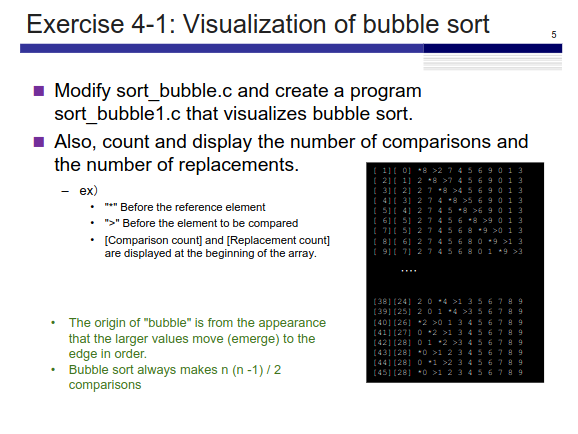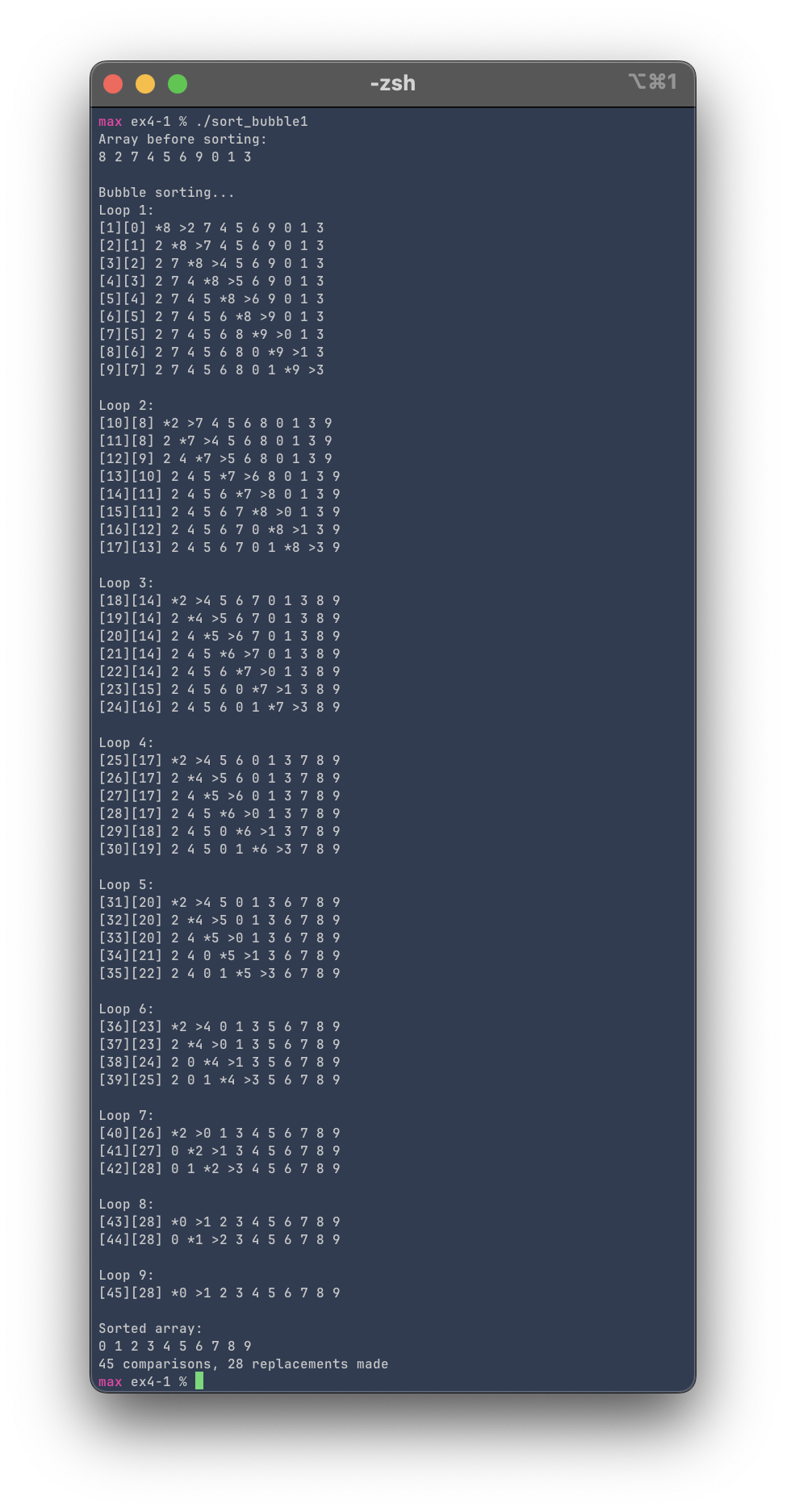Exercise 4-1: sort_bubble.c
Maximilian Fernaldy - C2TB1702

To visualize the comparisons, we need to modify the j level for loop of the program to print the current condition of the array for each comparison ran. An asterisk should be printed whenever our for loop encounters the element which is currently being referenced. Since the reference element is always compared to the element right next to it, we can just use j+1 for its index. Then, if the for loop encounters the j+1-th element, it should print a ">" before printing the value of the element.
for (j = 0; j < NUM-i-1; j++) {
comparisons++;
printf("[%d][%d] ", comparisons, swaps); // Display the number of comparisons and swaps done
for (int k = 0; k < NUM; k++) {
if (k == j) {
printf("*%d ", A[k]);
} else if (k == j + 1) {
printf(">%d ", A[k]);
} else {
printf("%d ", A[k]);
}
// Insert new line if k reaches the end of the array
if (k == NUM - 1) {
printf("\n");
}
}
// If compared number is smaller than reference number, swap them
if (A[j] > A[j+1]) {
temp = A[j];
A[j] = A[j+1];
A[j+1] = temp;
swaps++;
}
}
To print the array, we add a lower level for loop with iterator k, which goes from 0 to NUM-1 to print the elements one by one, terminating before it reaches NUM. When k is equal to j, that means the program is trying to print the element on the array that is being referenced, so it should print an asterisk before the integer. When k is equal to j+1, the program is trying to print the element it is being compared to, so it should print an exclamation mark before the integer.
Here, it's not critical to use else if instead of if, because an element cannot be indexed by j and j+1 at the same time. However, it is still good practice to use else if so that the program can skip over this condition if it has already executed the block above it (which is if (k == j))
To count the number of comparisons and replacements made by the program, integers comparisons and swaps are initialized as 0, and every time a new comparison is made (the beginning of the j level for loop), comparisons is increased by 1:
for (j = 0; j < NUM-i-1; j++) {
comparisons++;
...
}
similarly, we modify the code that swaps the numbers to increment swaps by 1 to keep track of how many swaps has been made:
if (A[j] > A[j+1]) {
temp = A[j];
A[j] = A[j+1];
A[j+1] = temp;
swaps++;
}
Compiling and running the program gives the following output:
